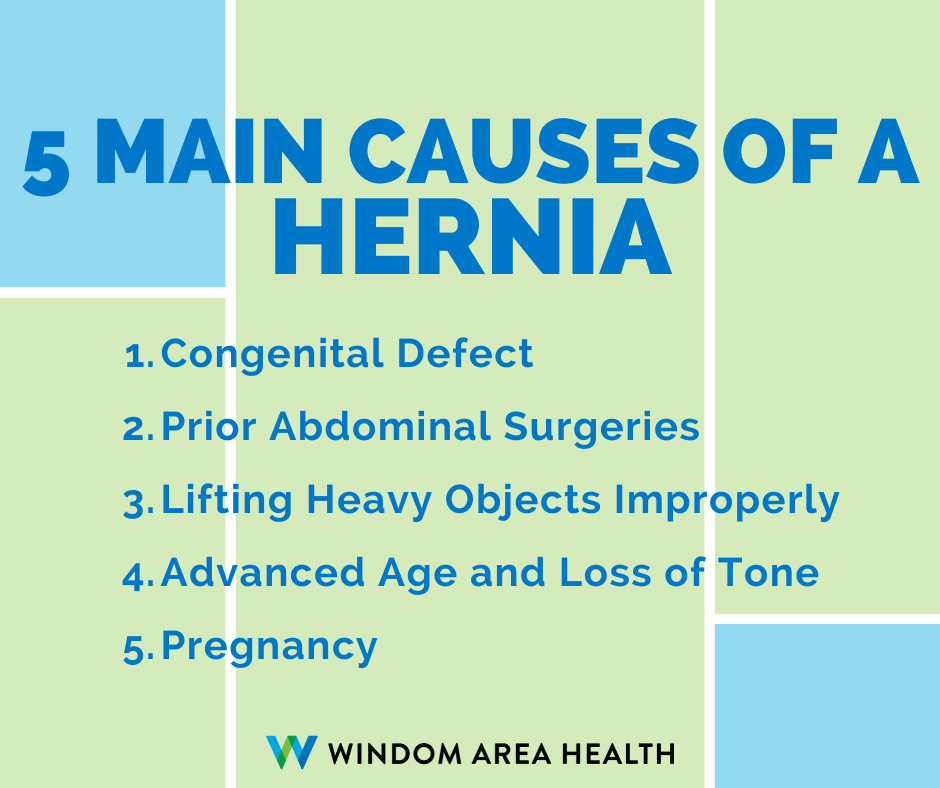
June is National Hernia Awareness Month, a time to raise public awareness about hernias and effective treatments. Each year, millions of Americans are affected by hernias, but a large number of those who are suffering don’t seek any kind of medical treatment. Read on to learn more about what hernias are and how you can seek treatment.
What is a Hernia?
A hernia happens when part of an organ or bit of tissue slips through a weakness or tear in an area of muscle. Most hernias are in the abdomen between the chest and hips, but they can occur also appear in the upper thigh and groin areas. Inguinal hernias, or hernias in the groin, are the most common type of hernia. Other types of hernias include: Umbilical (around the belly button), Incisional (through a scar), Hiatal (a small opening in the diaphragm that allows the upper part of the stomach to move up into the chest), and Congenital diaphragmatic (a birth defect that requires surgery).
Are You At Risk?
Hernias are common and can affect men, women, and children. Most people with hernias have a common set of signs and symptoms that can lead to the condition. Those who often lift objects or have activities that involve straining (such as a chronic cough or constipation) are subject to increased intra-abdominal pressure which, when paired with muscle weakness in key areas, may elevate the chances of developing a hernia. Some individuals are born with weak abdominal muscles and may be more likely to get a hernia as a result.
Signs and Symptoms
The most common sign of a hernia is a bulge or lump in the affected area, usually the abdomen. Some find that the lump will disappear when they lay down – hernias are more likely to be felt through touch when you’re standing up, bending down, or coughing. Soreness and discomfort when bending or lifting are also common signs. Different types of hernias can have different symptoms, but these are the most common. If you have these symptoms, speak with your medical provider about checking for a hernia.
Identifying hernias early can help avoid medical complications that may require emergency surgery. An untreated hernia won’t go away by itself and it can lead to obstruction of a passage or even block blood supply if the hernia enlarges.
How are Hernias treated?
If you suspect you may have a hernia, seek medical help as soon as possible, especially if pain and/or discomfort persists. Early medical care and changes to your lifestyle can minimize the symptoms, but surgery is the only way to effectively treat a hernia. Hernia repairs are a common and routine surgical procedure that normally only requires small incisions with patients returning home a few hours after surgery.
If you believe you may have a hernia, please reach out to us here at Windom Area Health to be checked out. Our Surgery Department will provide you with the best care and have you back on the road to recovery quickly. Learn more about our Surgery Department or call Surgical Services at 507-831-0652.
By Lori Johnson
